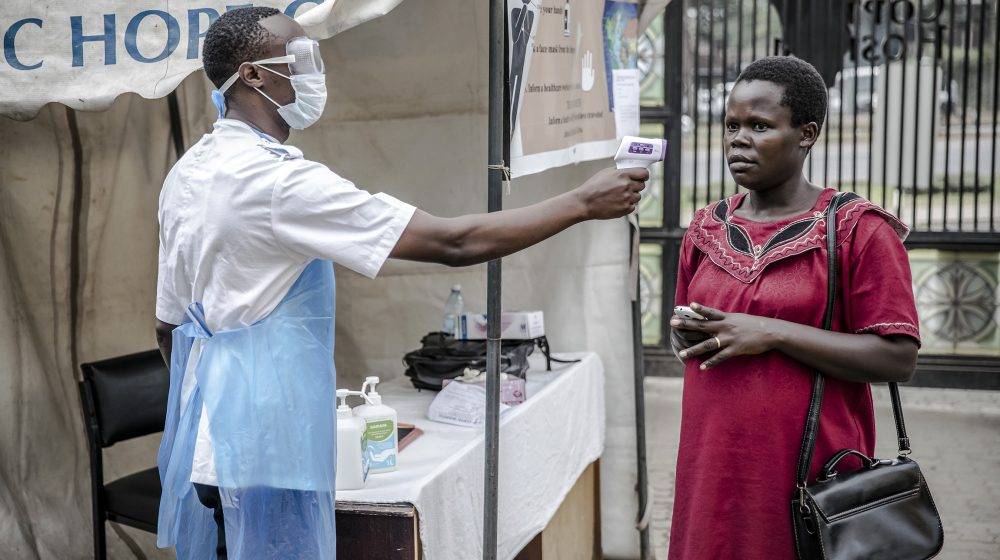There’s A Huge Price To Pay If Africa’s Coronavirus Measures Are Inadequate

Before the outbreak of the novel coronavirus pandemic, Africa was trying to stand on its feet in a variety of ways. Not only was the continent financially unprepared, its weak health systems have now proven somewhat inefficient to tackle to crisis.
Looming Crisis
An increasing number of African countries are instituting lockdowns and curfews to limited the spread of the virus. The measures are taking tolls on businesses and day to day living. So far, so good.
However, should the measures, debt relief and financial supports suffice inadequate, Africa will have a huge price to pay. The United Nations Economic Commission for Africa has said that the pandemic could take the lives of between 300,000 to 3.3 million Africans.
Even with assertive government measures to limit social interactions, ECA says this is significantly possible. It points the overcrowded nature of the continent’s slums as a major reason, as most of them have little or no access to water.
“To protect and build towards the continent’s shared prosperity, USD 100 Bn is needed to urgently and immediately provide fiscal space to all countries to help address the immediate safety net needs of the populations,” said Vera Songwe, UN Under Secretary-General and Executive Secretary of the Economic Commission for Africa.
Weak Health System
But more importantly, it is the fragile healthcare systems in the region that makes it more vulnerable to the disease. Unarguably the poorest continent in the world, Africa is experiencing a disturbing shortage in equipment, while having a substantial number of poorlu-paid healthcare workers.
As such, the continent finds itself with few means to protect itself from the coronavirus tsunami which has now claim 962 lives in Africa. In Nigeria, for instance, doctors are lamenting over the years of underfunding and negligence that have debilitated the health system.
Because figures for critical care facilities in Africa are difficult to come by, the World Health Organization (WHO) is still struggling to assess if the continent has capacity in this area.
Nevertheless, WHO’s Africa director, Matshidiso Moeti has said that intensive care beds are in “very short supply” as even countries with the most advanced systems, like South Africa, would struggle.
“They are recognising too that looking at the evolution in terms of the number of cases if the situation explodes in numbers, and large numbers of people have severe disease and are critically ill, this will indeed be a challenge,” he said.
Poverty
According to the Africa Centers for Disease Control and Prevention, the pace of coronavirus has picked up. Confirmed cases have more than doubles to 18,333 in a space of 2 weeks.
Another of ECA’s main concerns is that the pandemic might hurl 29 million African into extreme poverty. This is bothersome because Africa already hosts two-thirds of the world’s poorest people.
As of 2010, 200 million people in Sub-Saharan Africa were living in slums, what the UN-Habitat said was 61.7 percent of the region’s entire urban population. This happens to be the highest rate in the world.
Be as that may, the number of people living in slums in informal settlements have grown to 238 million people. As ECA pointed out, dense populations in such places which have healthcare shortage could be a catalyst for the spread of the virus.
Meanwhile,a third of the 440 million formal and informal jobs could be affected. McKinsey puts the figure at 150 million, at a time when 140 million Africans lack a reasonable means of livelihood. Lockdowns across the continent have greatly affected day jobs and other means of income.
Reality
According to the WHO, a well-functioning healthcare system requires a steady financing mechanism, a properly-trained and adequately-paid workforce, well-maintained facilities, and access to reliable information to base decisions on.
Western countries with better healthcare systems than Africa are strained. More so, death from the virus is increasing. For instance, france has one of the world’s most efficient healthcare systems. Yet, it currently has 165,027 confirmed coronavirus cases and 17,920 deaths.
South Africa has the one of the continent’s most sought-after healthcare system. But, to note, the country is struggling to keep things under medical management even as it national lockdown extends. Of 2,605 cases, 48 have died.
Without access to medicines, Africans are susceptible to the three big killer diseases on the continent: malaria, tuberculosis and HIV/AIDS. Globally, 50 percent of children under five who die of pneumonia, diarrhoea, measles, HIV, tuberculosis and malaria are in Africa, according to the WHO.
The global health agency said that African countries will be better-placed o win the battle against COVID-19 should they invest in additional intensive care unit beds and personal protective equipment for health workers and civilians.
Image: Africa Briefing